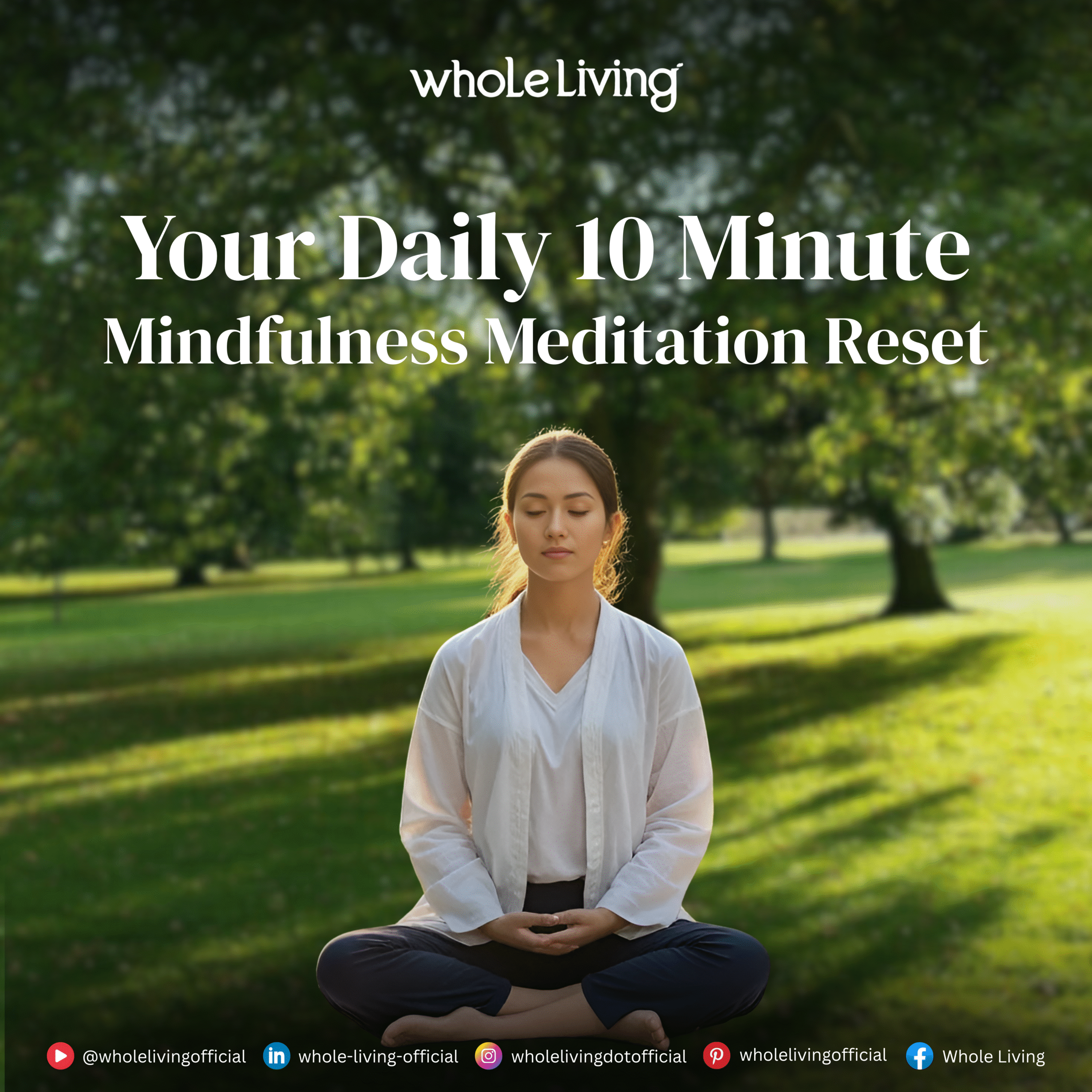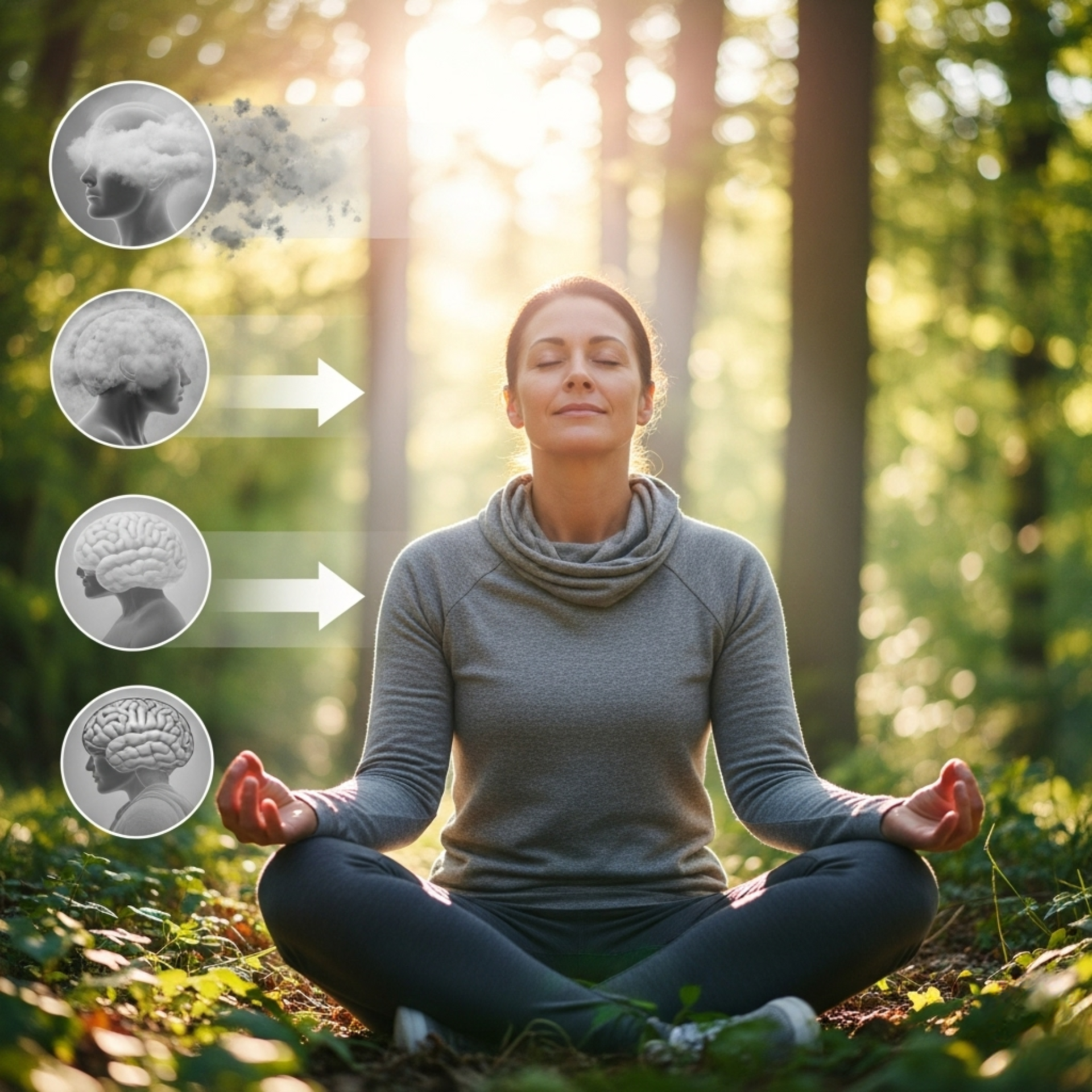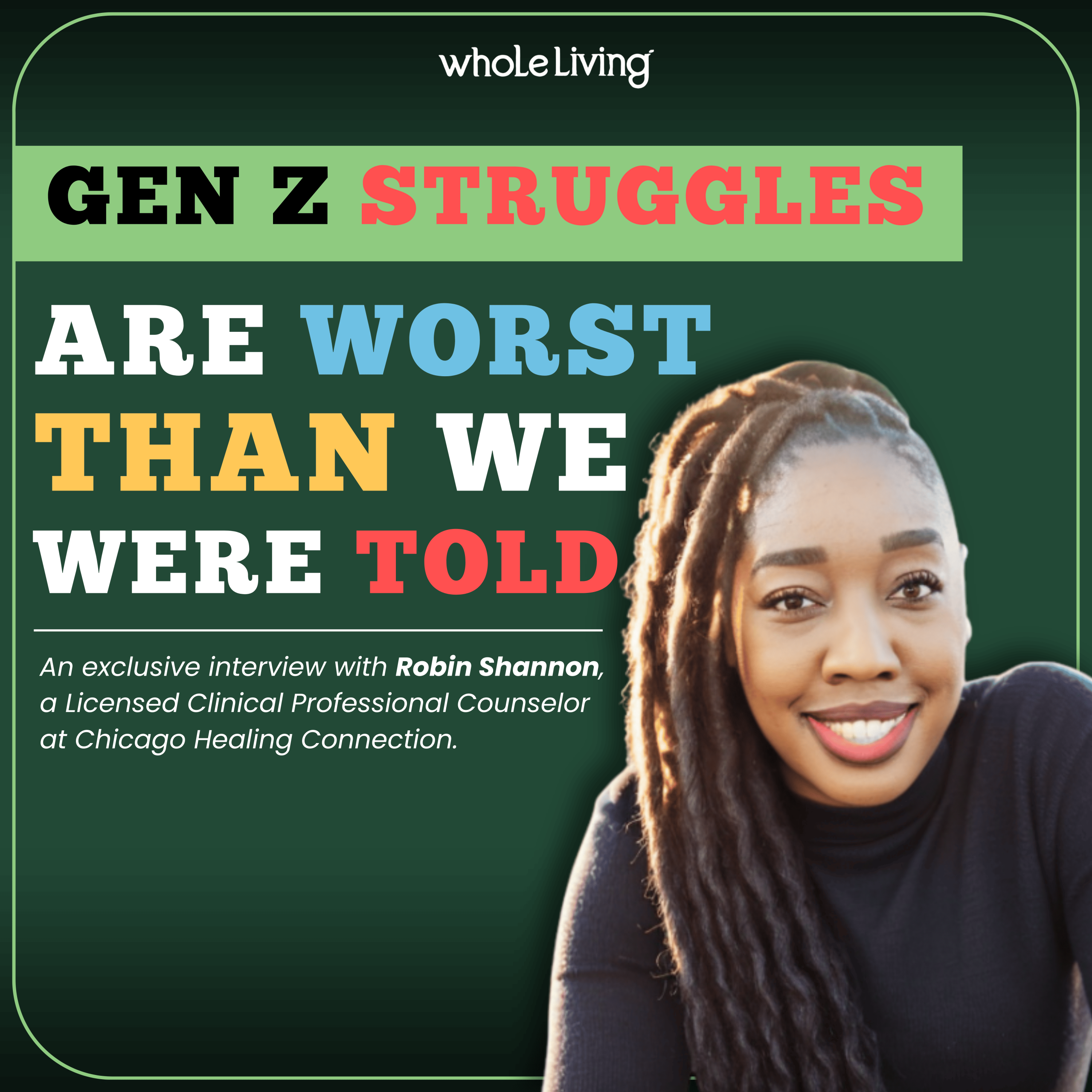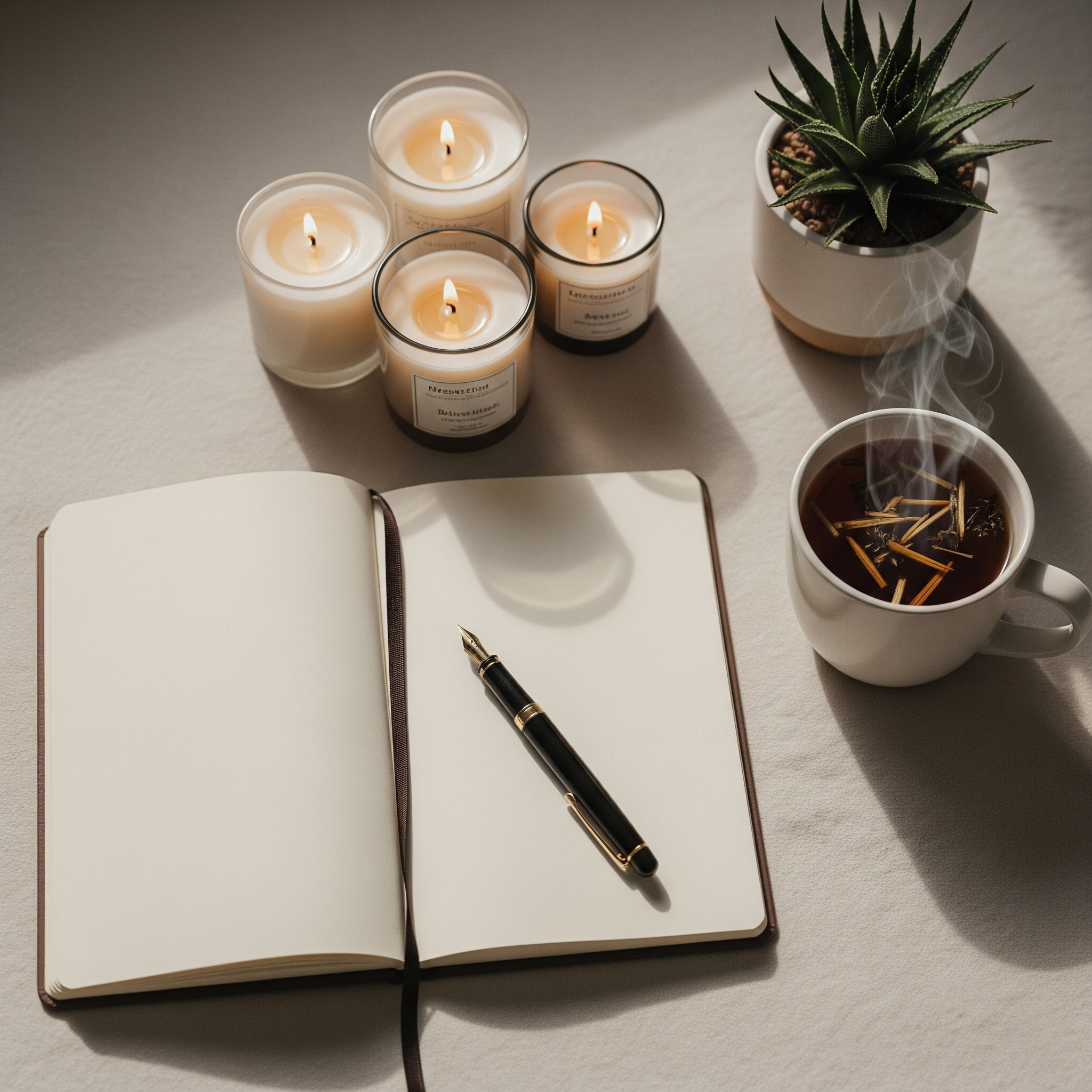In This Article
When your schedule never stops and your thoughts run faster than your day, it becomes hard to focus. You try to stay productive, but distracting thoughts keep circling back. This constant noise weighs heavily on your mental health, making even small tasks feel like climbing a mountain. The more you try to push through, the more your brain feels scattered and drained. That tightness in your chest? It's your body telling you it's time to listen and learn how to clear mind without slowing down.
Unchecked stressful thoughts can create tension, fatigue, and emotional fog. You may feel like you’re moving through your day but not really present. When your emotions are constantly stirred, you lose touch with the present moment. This can spiral into anxiety, irritability, and even physical pain. The cost of ignoring mental clutter is more than just mental; it touches every part of your overall health.
Unwanted thoughts steal your clarity and your calm. They keep you stuck, often cycling through the same thoughts over and over. Your sleep suffers. Your energy dips. And you wonder how much longer you can keep this up without breaking.
Learning how to clear mind noise is about more than just escaping. It’s about creating inner peace while you keep showing up for your life. With the right tools and gentle practices, you can protect your brain health and reconnect with what truly matters. You don’t need more time. You just need a fresh approach.
Why Slowing Down Isn’t Always the Answer

Let’s be honest, not everyone has the luxury to take a break. You have responsibilities, deadlines, and people counting on you. So when someone suggests slowing down, it can feel like a dream rather than an option. But calm isn’t only found in silence or stillness. It’s something you can access in motion, too.
The truth is, life doesn't wait until you feel ready. And sometimes trying to force rest only creates more stress. That’s why the goal isn’t to stop everything, but to weave small moments of presence into the rhythm of your day. You can still manage stress even when your schedule stays full. It starts with a shift in mindset rather than your calendar.
Relieving stress doesn’t require an empty weekend or perfect environment. What you need is intention and a few tools that meet you right where you are. Many integrative health experts agree that awareness is more powerful than avoidance. When you notice your feelings, even for a few seconds, you begin to build resilience. That’s the quiet strength that helps you feel grounded, even in chaos.
You don’t need to pause your life to find peace within it. You simply need new ways to approach your day, your emotions, and your thoughts. There’s no need for guilt when you can’t slow down. There’s just an invitation to shift how you move through it. Whole living means honoring both your pace and your peace.
Quick Grounding Tools for Fast-Paced Days

When your day is packed and your brain feels heavy, small actions can bring real relief. One of the fastest tools is controlled breathing. You don’t need a yoga mat or a quiet room. Just inhale slowly, hold for a moment, then exhale gently. Even 30 seconds of this simple rhythm can help lower stress and steady your focus.
Another tool that helps is expressive writing. Grab a pen and spill out your thoughts on paper without overthinking. It doesn’t need to sound pretty or be organized. The act of writing helps free your mind from clutter and clears space for clarity. It’s like giving your mental load a place to rest outside your head.
Music is also a powerful ally on busy days. The right playlist can shift your emotions, energize your body, or bring a sense of calm. Whether it's soft piano or uplifting beats, music has a direct line to your brain and feelings. Let it be a companion as you move through your tasks.
These quick tools won’t erase your to-do list, but they will help you carry it with more ease. They create micro-moments of presence and awareness throughout your day. Think of them as anchors in the current. Simple, practical, and ready when you need them most. That’s the beauty of whole living.
READ ALSO: Mindful Souls Grow at Their Own Pace
The Brain’s Rhythm and Why It Matters

Your brain isn’t just a machine for thinking. It follows natural rhythms, like waves in the ocean. These waves are known as alpha and beta rhythms, and they shape how you focus, process feelings, and respond to stress. When these rhythms are disrupted, you feel foggy, anxious, or distracted. That’s why tuning into your brain health matters more than ever.
Your primary sensory neocortex and inferior frontal regions help regulate attention and emotional control. When you multitask or jump from thought to thought, those areas work overtime. Over time, this can lead to mental fatigue. But when you give your brain moments to pause, even briefly, you support its natural reset. It’s like clearing the cache in your computer.
Attention drives synchronization, meaning the more focused you are, the more your brain operates in harmony. This is why mindful activities like breathing or stretching can shift your entire state. They allow your brain to return to its natural rhythm. And when your brain is calm, the rest of your body follows.
Understanding your brain’s rhythm doesn’t mean you need to study neuroscience. It just means you can honor what your body already knows. Less noise, more flow. Less rushing, more rhythm. That’s the magic of tuning into your internal beat.
What Meditation Looks Like When You’re Busy

You don’t have to sit cross-legged for an hour to practice meditation. You can do it while you drink your morning tea, walk to your car, or wash the dishes. Practicing meditation is about awareness, not perfection. It’s about learning to return to the present moment whenever your mind wanders. And the best part? It gets easier with time.
There are many forms of meditation that fit busy lives. Walking meditations, body scans, breath-focused techniques—these can all be done in under five minutes. Even a short meditation practice each day improves memory, mental clarity, and emotional balance. If you struggle to start, try a guided meditation class online. Let someone lead you until it becomes second nature.
The benefits of meditation reach beyond mental health. It helps relieve stress, reduce anxiety, and even improve sleep. Studies from the National Center for complementary and integrative health confirm its value for both emotions and body. It’s a low-cost, high-impact ritual that supports every area of your life.
Meditation is a gift you give to yourself. Not because everything is perfect, but because you deserve peace even when it’s not. In the middle of your busy day, one mindful breath can create a shift. That’s the quiet power of choosing to stay present. One breath, one moment, one choice at a time.
Movement as a Mental Reset

You might not always have the time to sit still, but movement can offer the same healing. Gentle forms of exercise like yoga, tai chi, or a brisk walk can help clear your mind and sharpen your focus. These activities create natural rhythms that reconnect your body and brain. They reduce anxiety, balance emotions, and provide an outlet for built-up tension. Motion creates momentum, not just physically but emotionally.
When you move, you give your brain a break from overthinking. Studies show movement supports memory, emotional regulation, and overall health. Even 10 minutes of light walking can lift your mood and change the way you process stress. Instead of fighting your thoughts, you flow through them. Movement becomes a way to cope and find clarity.
Many people use exercise as a form of meditation. You focus on your breath, your steps, or the rhythm of your movements. This type of present moment awareness helps reduce negative feelings and boost well being. And when you combine movement with nature, the benefits multiply. You return home with a lighter mind and a steadier heart.
Your body holds wisdom that your mind sometimes forgets. Let it guide you back to inner peace. You don’t need intensity. You need intention. Let each movement be a reminder that clarity doesn’t require stillness—just connection.
READ ALSO: Think Positive Be Positive: The Mood Shift You Need
Sound, Sleep, and Soothing the Mind

Sound has a powerful effect on the brain. Whether it’s a favorite song or a calming melody, music can reach parts of you that words can’t. It helps ease anxiety, release pain, and reconnect with emotions that feel buried. The right music can help relieve stress and bring a deep sense of calm. It’s not just a background noise; it’s a tool for healing.
Your bedtime routine also shapes your mental health. Creating rituals around sleep and rest sends signals to your brain that it’s safe to slow down. Soft lights, gentle sounds, and intentional breathing can prepare both body and mind for the night. If you struggle with falling asleep, consider combining these with a short meditation. Just a few minutes can help you unwind and feel supported.
Approaching sleep from a complementary and integrative health lens brings a new level of care. It includes practices like herbal teas, breathing exercises, and screen-free evenings. These habits aren’t trends—they’re rooted in supporting your nervous system and overall health. When you sleep better, you think clearer and feel more grounded during the day. That’s the foundation of whole living.
Don’t wait until you’re exhausted to nurture your rest. Let music and ritual become part of your nightly rhythm. Honor your need to recharge. Your brain will thank you. So will your feelings.
What Science Says About Mental Stillness

You don’t need to guess if meditation works. Research shows that it helps with everything from physical pain to depression. A recent meta analysis found that practicing meditation regularly improves mental health, reduces anxiety, and increases emotional stability. It even supports better memory and deeper sleep. These are real, lasting benefits you can feel.
Mindfulness isn’t just a wellness trend; it’s backed by science and trusted by professionals. Experts in public health and family medicine now recommend meditation as part of everyday care. It’s not just about sitting still. It’s about becoming more self aware and tuning into your life with clarity. That’s how you begin to clear your mind without adding pressure.
These findings confirm what many already know in their hearts: calm is possible. You don’t have to be perfect. You just have to be present. Every breath, every pause, every moment of awareness brings you closer to balance. And the more you practice, the more natural it feels.
Science continues to uncover what ancient wisdom has always said. Stillness heals. Meditation strengthens your brain, your emotions, and your resilience. That’s more than data. That’s your invitation.
READ ALSO: How to Be Happy Without Forcing Positivity
Whole Living: Clearing Your Mind Without Cutting Corners

Whole living is not about doing less. It’s about doing what matters with clarity and intention. When you live with purpose, you naturally clear your mind of noise that doesn’t serve you. You don’t need a perfect routine. You need small, honest practices that align with who you are.
Being self aware means noticing when your thoughts spiral or when your energy shifts. It means checking in with your emotions before they overwhelm you. This kind of presence doesn’t take time—it takes attention. You can bring it into anything: brushing your teeth, walking your dog, making tea. This is how you begin staying present in the flow of daily life.
Habits like meditation, breathing exercises, light exercise, and listening to music aren’t just helpful—they’re necessary. They protect your mental and emotional health so you can keep showing up without losing yourself. They also support your brain, ease stress, and boost well being. That’s how you care for your whole life, not just the urgent parts.
Clarity doesn’t come from escaping. It comes from embracing your days with presence and grace. You can stay in motion and still be at peace. That’s the path of whole living.
Key Takeaway: It’s Possible to Feel Peaceful Without Stopping Everything
You don’t have to cancel your life to feel calm inside. You just need to learn how to clear your mind while staying connected to what matters. Let go of the pressure to do more. Instead, choose to be more present.
The most powerful tools are often the simplest ones. A breath. A walk. A kind word. A moment of quiet. These create space for inner peace. Remember, stress doesn’t have to control your day. You can manage stress with intention, not intensity. Let your life be full, but not frantic.
Peace lives in how you move through your world. Not in what you avoid. Not in doing it all perfectly. But in showing up with clarity, compassion, and care—for yourself.






















